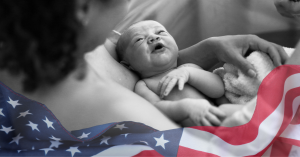
Eliminating the right to birthright citizenship has led to prosecutors from 18 US states and the city of San Francisco are suing the incoming Donald Trump administration.
After prosecutors from 18 US states and the city of San Francisco reported on Tuesday morning that they have sued the newly incoming San Francisco Administration, Donald Trump Four more states have joined in seeking to eliminate birthright citizenship, bringing the number of governments seeking to halt the executive order to 22.
The 22 states are joined by the city of San Francisco, the District of Columbia, and several civil rights and legal organizations in New Hampshire and Massachusetts.
These lawsuits seek to challenge the unconstitutional executive order that would affect tens of thousands of babies born each year in the United States.
The lawsuit, led by California, New Jersey, and Massachusetts, argues that President Trump’s unprecedented executive order violates the Fourteenth Amendment to the U.S. Constitution and Section 1401 of the Immigration and Nationality Act and should be immediately blocked from taking effect while litigation is ongoing.
The executive order signed by Trump, entitled “Protecting the Meaning and Value of American Citizenship,” states that the Fourteenth Amendment has never been interpreted as a universal extension of citizenship to all persons born in the United States.
“The Fourteenth Amendment has always excluded from birthright citizenship persons who were born in the United States but are not “subject to its jurisdiction,” it said.
Among the categories of people born in the United States and not subject to its jurisdiction, the executive order details, are: “when the mother of that person was unlawfully present in the United States and the father was not a United States citizen or lawful permanent resident at the time of the birth of said person.”
In turn, it says: when the presence of that person's mother in the United States at the time of that person's birth was legal but temporary (such as, among others, visiting the United States under the auspices of the Visa Waiver Program or visiting on a student, work, or tourist visa) and the father was not a United States citizen or lawful permanent resident at the time of that person's birth.
It also specifies that “it is the policy of the United States that no department or agency of the United States government will issue documents recognizing United States citizenship, or accept documents issued by state, local, or other governments or authorities purporting to recognize United States citizenship, to persons: (1) where that person’s mother was unlawfully present in the United States and the person’s father was not a United States citizen or lawful permanent resident at the time of that person’s birth, or (2) where that person’s mother’s presence in the United States was lawful but temporary, and the person’s father was not a United States citizen or lawful permanent resident at the time of that person’s birth.”
This executive order, explains, will take effect 30 days after it is signed.
Under these conditions, the lawsuit filed by these 22 states states that these children would lose their most basic rights and would be forced to live under the threat of deportation, they would lose eligibility for a wide range of federal benefit programs, as well as their ability to obtain a Social Security number and, as they age, to work legally, and they would also lose their right to vote, to serve on juries and to run for certain offices.
In documents filed Tuesday, January 21, one day after the decree was signed, the attorneys general maintain that President Trump's executive order is a flagrant violation of the Constitution and the Immigration and Nationality Act and would cause irreparable harm to the states and their residents.
You may be interested in: As President Trump declares a border emergency on Day 1, targeted immigrants in California remain hidden

